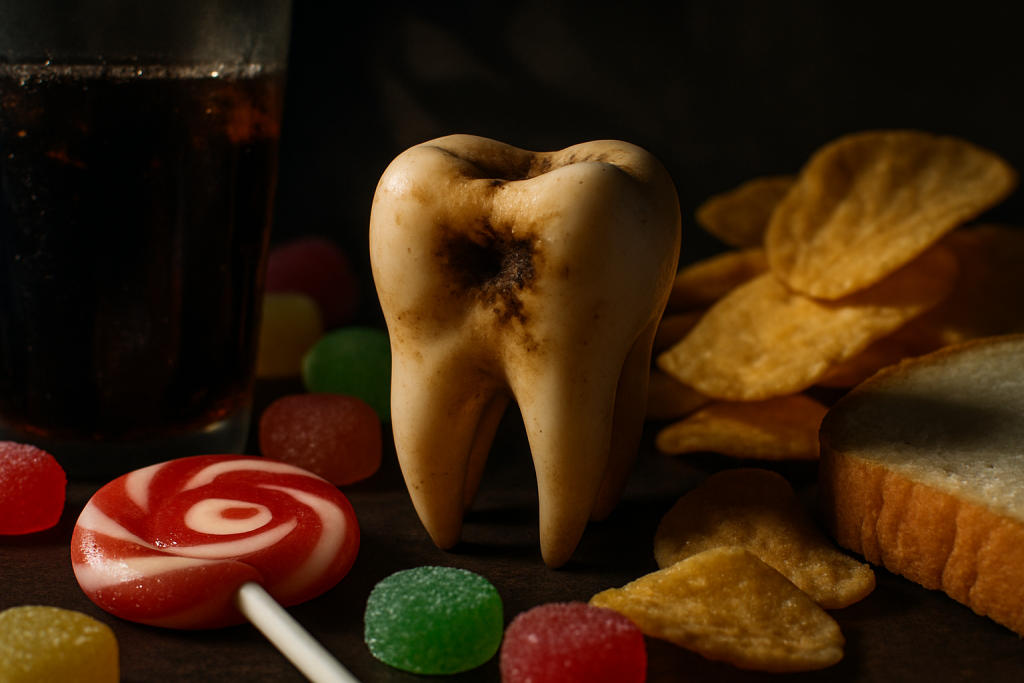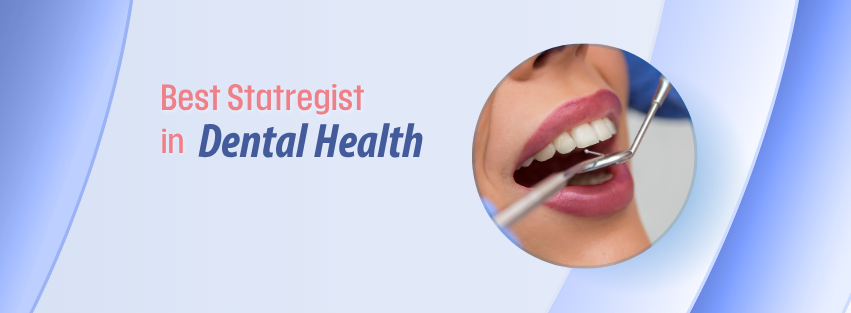
Effective strategies to stop teeth from rotting:
Do you find yourself worried about your teeth rotting? You’re not alone. Many people face this fear due to poor dental hygiene, diet, and lifestyle choices. Fortunately, there are effective strategies you can use to keep your teeth healthy and stop them from rotting. Here’s what you need to know.
Understand dental health basics:
The first step to stopping your teeth from rotting is to understand what causes decay. Cavities, or dental caries, occur when acids produced by bacteria eat away at your tooth enamel. This can happen if you consume sugary foods and beverages, skip brushing, or neglect regular dental check-ups. By understanding these basics, you can take informed steps to protect your teeth.
Maintain a consistent oral hygiene routine:

One of the most effective ways to prevent tooth decay is by maintaining a good oral hygiene routine. This should include:
- Brushing Twice Daily: Brush your teeth at least twice a day for two minutes each time. Use fluoride toothpaste, as it helps to strengthen enamel and reduce the risk of decay.
- Flossing Daily: Don’t skip flossing! It helps remove plaque and food particles stuck between your teeth where a toothbrush can’t reach. Make this a daily habit.
- Use Mouthwash: Incorporate an antibacterial mouthwash into your routine. This not only freshens breath but also kills bacteria that can lead to cavities.
Choose a tooth-friendly diet:
Your diet plays a significant role in your dental health. By focusing on foods that are good for your teeth, you can prevent decay. Here are some key dietary tips:
- Limit Sugary Foods: Sugar fuels bacteria in your mouth, so try to minimize sweets, candies, and sugary drinks.
- Eat More Fruits and Vegetables: Crunchy fruits and veggies like apples and carrots can help clean your teeth. Plus, they’re full of vitamins that support overall health.
- Opt for Whole Grains: Whole grains have less sugar than refined ones, making them a better choice for your teeth.
- Stay Hydrated: Water helps wash away food particles and bacteria. Drinking plenty of water is essential, especially if you consume acidic foods and beverages.
Visit your dentist regularly:
Regular dental check-ups are crucial for maintaining healthy teeth. Dentists can identify issues early before they turn into bigger problems. Here’s what you should do:
- Schedule Biannual Visits: Aim to visit the dentist every six months for a cleaning and check-up.
- Ask About Sealants: Dental sealants are protective coatings applied to your back teeth, helping to prevent cavities.
- Discuss Fluoride Treatments: Fluoride treatments can provide extra protection against decay.
Avoid harmful habits:
Certain habits can lead to faster tooth decay. It’s important to avoid or minimize these habits:
- Don’t Smoke: Smoking harms your gums and teeth. It’s best to avoid tobacco in all forms.
- Avoid Nail Biting: Biting your nails can damage teeth and lead to issues over time.
- Limit Acidic Beverages: Drinks like soda and wine can erode tooth enamel. If you drink them, try to use a straw to minimize contact with your teeth.
Be mindful of your teeth:
Being aware of how you treat your teeth can help prevent decay. Here are some final tips:
- Chew Sugar-Free Gum: Chewing gum can stimulate saliva production, which naturally protects your teeth and enamel.
- Avoid Using Teeth as Tools: Never use your teeth to open packages or bottles. This can cause chips and cracks.
- Protect Your Teeth During Sports: If you play contact sports, wear a mouthguard to prevent injury to your teeth.
Understanding the role of diet in dental health:
Your diet plays a crucial role in your dental health. What you eat not only affects your general well-being but also your teeth and gums. Consuming the right foods can strengthen your teeth and prevent dental issues. This presentation explores how diet influences dental health and what changes you can make for better oral hygiene.

A variety of nutrients are essential for maintaining strong teeth. Here are the main players:
- Calcium: Essential for strong teeth and bones. It helps maintain the structure of your teeth and prevents decay. Dairy products, leafy greens, and almonds are rich sources of calcium.
- Vitamin D: Helps your body absorb calcium. Without enough vitamin D, your teeth can weaken over time. Sunlight, fatty fish, and fortified foods are excellent sources.
- Phosphorus: Works with calcium to build and maintain strong teeth. Foods like meat, eggs, and fish are great sources of phosphorus.
- Vitamin C: Important for gum health. It aids in healing and prevents gum disease. Citrus fruits, strawberries, and bell peppers can help you get enough vitamin C.
- Fluoride: This mineral is crucial for preventing cavities. It strengthens enamel and makes your teeth more resistant to decay. Many toothpaste brands and some municipal water supplies contain fluoride.
Teeth-friendly foods into your daily routine can significantly enhance your dental health. Here’s what to focus on:
- Fruits and Vegetables: These are high in water and fiber, which helps wash away food particles from teeth. Crunchy vegetables like carrots and celery can also help remove plaque.
- Dairy Products: Cheese, yogurt, and milk are rich in calcium and phosphates. They are also low in sugar, making them great for your teeth.
- Nuts and Seeds: These provide healthy fats and proteins and are rich in nutrients that are beneficial for dental health, like calcium and magnesium.
- Whole Grains: Foods such as brown rice and whole wheat bread are important for overall health and provide necessary vitamins for oral health.
- Lean Proteins: Chicken, turkey, and fish provide phosphorus and other essential nutrients. They also help repair damaged tissues, including gums.
While focusing on healthy foods, it’s equally important to limit your intake of sugary and acidic foods. Sugary snacks and drinks can lead to plaque buildup and tooth decay. Here are some foods to cut down:
- Sugary Candies: These can stick to your teeth and cause decay.
- Soda and Fruit Juices: High in sugar and can erode enamel due to acidity.
- White Bread and Pasta: These can break down into sugar in your mouth, contributing to decay.
- Chips and Crackers: These can stick to teeth and promote plaque buildup.
Drinking plenty of water also plays a significant role in maintaining healthy teeth. Water helps rinse your mouth, removing leftover food particles and reducing acidity. It’s particularly beneficial after consuming meals.
Understanding the role of your diet can empower you to make better choices for your dental health. By consuming the right foods and avoiding those that harm your teeth, you can maintain a bright and healthy smile for years to come.
Daily habits for maintaining strong teeth:
Maintaining strong teeth is essential for overall health and well-being. The habits you cultivate in your daily routine can significantly impact the strength and longevity of your teeth.
By focusing on a few key daily practices, you can ensure that your smile remains bright and healthy for years to come. Here are some effective daily habits to help you keep your teeth in top condition.
Brush your teeth twice a day:
Brushing your teeth is one of the simplest yet most effective habits you can adopt for good dental health. Aim to brush your teeth twice daily—once in the morning and once before bedtime. Use a fluoride toothpaste, as it effectively combats plaque and strengthens tooth enamel. When brushing, make sure to:
- Use a soft-bristled toothbrush that fits comfortably in your mouth.
- Brush for at least two minutes, covering all surfaces of each tooth.
- Replace your toothbrush every three to four months or sooner if the bristles are frayed.
Floss daily:
Flossing is a crucial step that many people often overlook. It helps remove food particle buildup and plaque between the teeth, where your toothbrush might not reach. To make flossing effective, follow these tips:
- Use about 18 inches of dental floss and wind most of it around your middle fingers.
- Hold the floss taut between your fingers and gently glide it between your teeth.
- Curve the floss around each tooth and slide it below the gumline.
Limit sugary foods and drinks:
Your diet plays a significant role in your dental health. Sugary foods and beverages can lead to decay and cavities. Aim to limit your intake of such items, including:
- Sodas and sugary drinks
- Candy and sweets
- Pastries and desserts
Instead, opt for healthy snacks like fruits, vegetables, and nuts, which are not only beneficial for your overall health but also for your teeth.
Stay hydrated with water:
Drinking plenty of water helps wash away food particles and bacteria that contribute to tooth decay. Water also keeps your mouth moist, which is important for saliva production. Saliva plays a key role in neutralizing acids produced by bacteria in your mouth. Aim to drink water throughout the day, especially after meals and snacks.
Consider mouthwash:
A fluoride mouthwash can be a beneficial addition to your dental routine. It helps reach areas that brushing and flossing might miss. Rinsing with mouthwash can help:
- Reduce plaque
- Fight bad breath
- Strengthen tooth enamel
Choose an alcohol-free mouthwash to avoid potential dryness in your mouth, and use it as directed.
Natural remedies for preventing tooth decay:
Tooth decay is a common issue, but you can take steps to prevent it naturally. By incorporating certain habits and remedies into your routine, you can promote stronger teeth and keep decay at bay. Below are some effective natural remedies that help maintain your oral health.
There are various natural remedies you can incorporate into your routine:
- Coconut Oil Pulling: Swishing a tablespoon of coconut oil in your mouth for about 15-20 minutes may reduce bacteria and plaque.
- Green Tea: Rich in antioxidants, green tea can help reduce oral bacteria and improve overall oral health.
- Clove Oil: Known for its antimicrobial properties, clove oil can also relieve toothaches. It can be applied directly to affected areas or used in moderation in homemade mouthwash.
Consider Natural Supplements:
If you want to enhance your dental health further, consider these natural supplements:
- Probiotics: They may help balance the bacteria in your mouth, reducing the chances of cavities.
- Vitamin K2: This vitamin is known for its ability to aid calcium absorption, which is essential for strong teeth.
- Coenzyme Q10: An antioxidant that might improve gum health and reduce inflammation.
By integrating these practices and remedies into your daily life, you can effectively prevent tooth decay and maintain your overall oral health. Remember, consistency is crucial; small daily habits can make a big difference in your long-term dental health.
Conclusions:
Protecting your teeth from rotting is a multifaceted approach that involves understanding various factors influencing dental health. By incorporating effective strategies into your daily routine, you can significantly reduce the risk of tooth decay. Prioritizing a balanced diet—rich in calcium, phosphorus, and vitamins—plays a crucial role in maintaining your teeth’s strength and resilience. Foods like dairy, leafy greens, and nuts not only provide essential nutrients but also actively support enamel health.
Daily habits matter too. Brushing twice a day, flossing regularly, and using mouthwash can create an environment in your mouth that discourages bacteria from thriving and leading to rot.
Along with these practices, being proactive about scheduling regular dental check-ups ensures that any potential issues are caught early. Remember, prevention is always easier than treatment.
